Metal Braces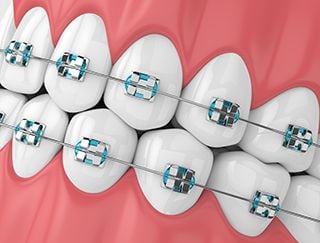
Traditional metal braces are the most common type of braces, as they correct a variety of orthodontic conditions and are generally the most affordable. Made of high-grade stainless steel, metal braces straighten your teeth using metal brackets and archwires. With metal braces, you have the option of adding colored elastics (ligatures) for a unique and colorful smile.
Self-Ligating Braces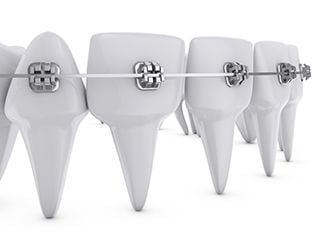
Traditional braces make use of bands around the brackets to hold the adjusting wire in place. “Self-ligating” means “self-binding” or “self-tying.” These braces use brackets, but with a very different design. Self-ligating brackets have mechanisms such as doors or clips, which hold the wire to the bracket without the need for rubber bands or metal ligatures. Without these ligatures, brackets are smaller and less noticeable. They also don’t need as many adjustments, so you’ll require fewer appointments and generally undergo a shorter treatment time.
Clear Braces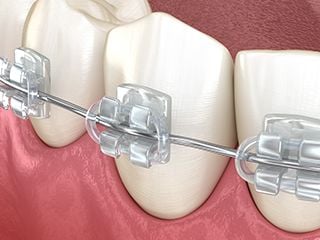
Clear braces use brackets made of clear or tooth-colored ceramic, which blend beautifully with the color of your tooth. The elastic ligatures, or rubber bands, can be chosen to match the brackets or your enamel.
Clear brackets can sometimes be somewhat larger (though this isn’t always the case), and, because they can be more abrasive than their metal counterparts, they are often recommended for upper teeth only.
Clear Aligners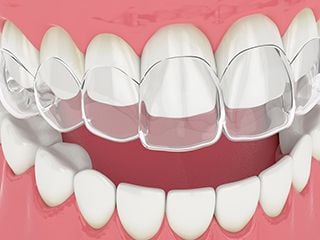
Clear aligners use a series of custom-made trays that shift teeth gradually into place. For patients who need mild-to-moderate corrections, this can be a great option.
In addition to being clear, you can change your aligners at home instead of having to visit our office every few weeks. They can even be removed while you eat, brush, and floss.
Lingual Braces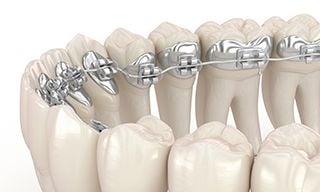
If you want corrective braces but don’t like the look of traditional braces with the metal showing on the front, you have an alternative in lingual braces. As opposed to metal braces visible across the front of the teeth, lingual braces are placed on the backsides of the teeth. Most of the metal in lingual braces is not visible to other people, unless you have widely spaced teeth.
Lingual braces are just as effective as traditional braces and are worn for the same amount of time. They are helpful for people who play contact sports or play wind instruments because lingual braces don’t get in the way. Finally, lingual braces are a great option for patients who are sensitive to plastic and can’t wear other types of clear or invisible braces.
Leave a Reply